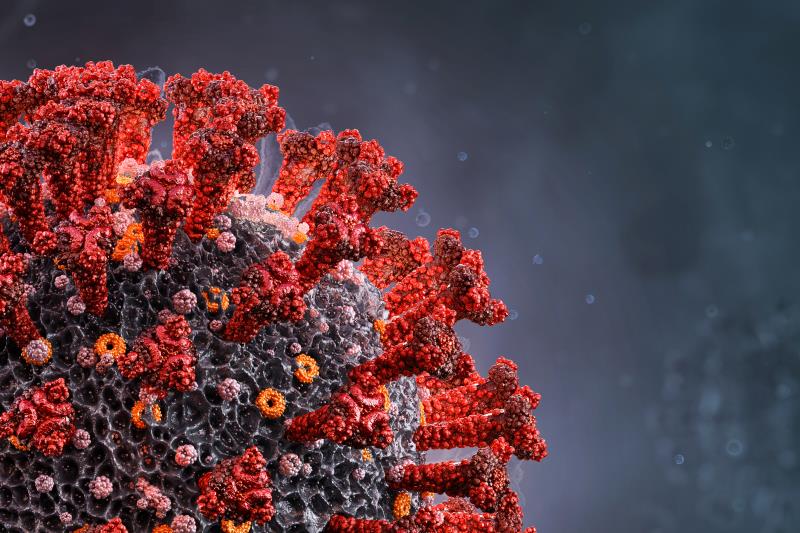Does sofosbuvir-daclatasvir have a role in COVID-19 management?





A small study conducted in Iran suggests a role for sofosbuvir-daclatasvir in the treatment of moderate-to-severe COVID-19.
This open-label trial included 66 adult patients with moderate or severe COVID-19 who were admitted at one of four hospitals in Tehran, Iran. They were randomized 1:1 to receive the standard-of-care (SoC)* regimen of hydroxychloroquine (200 mg twice/day) ± lopinavir/ritonavir (250 mg twice/day) with or without a once-daily regimen of sofosbuvir (400 mg) plus daclatasvir (60 mg) for 14 days.
Patient characteristics were as follows: sofosbuvir-daclatasvir group: median age 58 years, 61 percent male; SoC-only group: median age 62 years, 42 percent male. Fifty-two and 33 percent of patients in the sofosbuvir-daclatasvir and SoC groups, respectively, had diabetes, 36 and 33 percent, respectively, had hypertension, and 23 and 33 percent, respectively, were obese.
A greater proportion of sofosbuvir-daclatasvir compared with SoC-only recipients achieved clinical recovery** within 14 days of treatment, though this was not significant (88 percent vs 67 percent; p=0.076). Time to clinical recovery was significantly shorter in the sofosbuvir-daclatasvir compared with the SoC-only group (median 6 vs 11 days; p=0.041).
Duration of hospitalization was significantly shorter among patients who received sofosbuvir-daclatasvir compared with SoC only (mean 6 vs 8 days; p=0.029).
The need for mechanical ventilation did not significantly differ between the sofosbuvir-daclatasvir and SoC-only groups (9 percent vs 21 percent; p=0.303). More patients in the SoC-only than sofosbuvir-daclatasvir group received lopinavir/ritonavir (64 percent vs 33 percent; p=0.026).
“However, the outcomes in the treatment group were balanced across lopinavir/ritonavir administration,” said Hannah Wentzel, a public health student at Imperial College London, UK, who presented the results at the COVID-19 conference organized by the International AIDS Society. In addition, corticosteroid administration (36 and 24 percent of sofosbuvir-daclatasvir and SoC-only recipients, respectively) did not predict clinical recovery outcomes, she said.
No adverse events were reported. There were three deaths in the sofosbuvir-daclatasvir group and five in the SoC-only group.
The researchers also conducted a meta-analysis combining this trial and two others in Abadan and Sari, Iran, with a total of 176 patients. The trial in Abadan was not randomized and consecutive patients received hydroxychloroquine with either sofosbuvir-daclatasvir or lopinavir/ritonavir plus ribavirin***. In the Sari study, patients received either sofosbuvir-daclatasvir plus ribavirin or hydroxychloroquine ± lopinavir/ritonavir.
In the pooled analysis, median age of patients was 57 and 61 years in the sofosbuvir-daclatasvir and control arms, respectively, and 52 and 42 percent, respectively, were male. Time to discharge from hospital was improved in the sofosbuvir-daclatasvir compared with the control arm (subhazard ratio, 2.03; p<0.001). Meta-analysis showed a reduction in mortality risk with sofosbuvir-daclatasvir vs SoC.
“Other viral families share similar replication mechanisms to SARS-CoV-2. Therefore, existing nucleotide and nucleoside analogues are being investigated as potential COVID-19 therapies,” said Wentzel.
“Sofosbuvir-daclatasvir is associated with faster discharge from hospital and improved survival in this combined analysis of three trials,” she added. However, limitations include the small sample size and lack of viral load data. The results will be confirmed in the larger, double-blind, placebo-controlled, randomized DISCOVER trial, results of which are anticipated in September, she said.